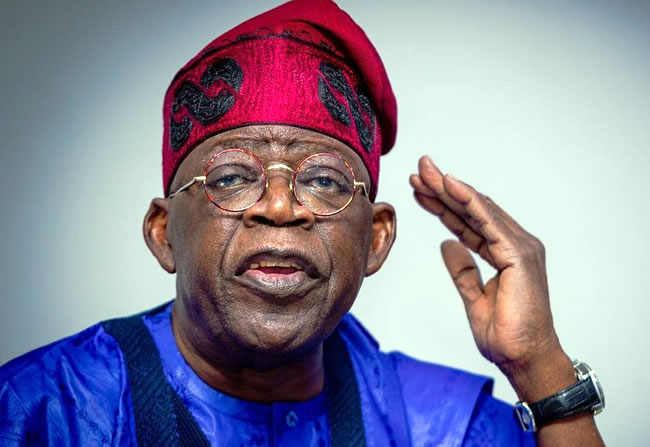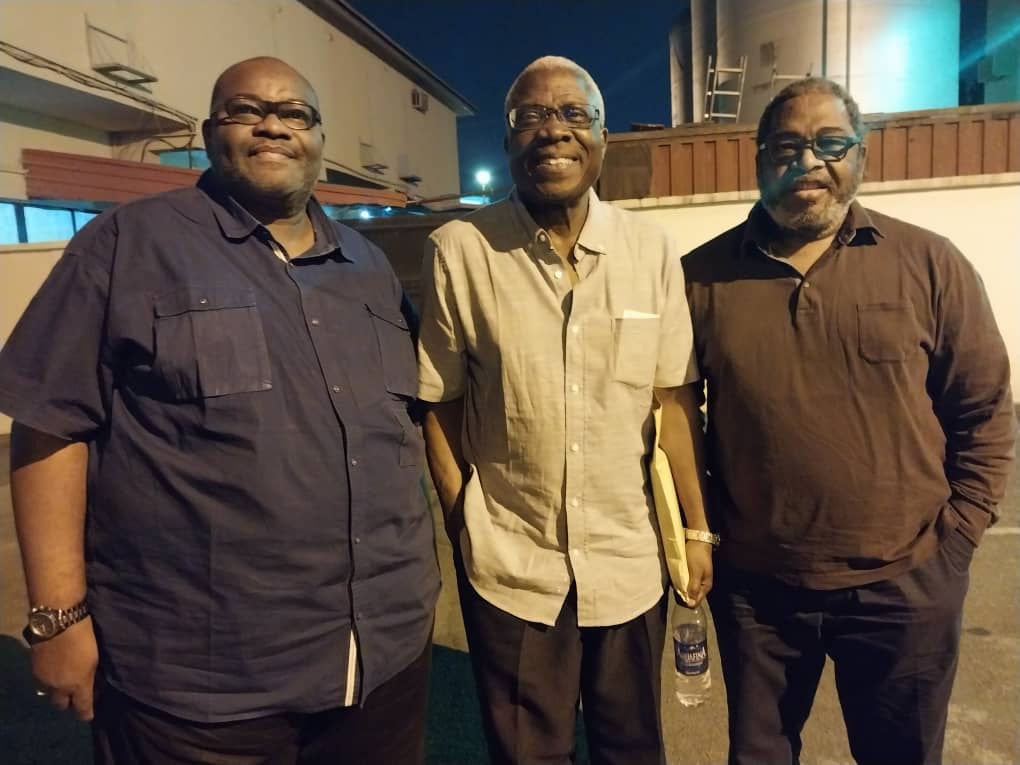By Yakubu Sani
At no time in history has the global social and economic dynamics been so challenged like now. It is coming at a time of Nigeria’s transition from one government to another. The good thing is that the president-elect, Bola Ahmed Tinubu, is a man of excellence, who has been roundly acknowledged as a recruiter-in-chief. He will go the breadth and length of every circumstance to get eggheads into his government. He is a man who doesn’t take no for an answer.
A time of economic uncertainties such as this requires Nigeria’s best brains to ensure quick wins. Despite the scepticism by cynics, those who believe in the in-coming government are beginning to set agenda and putting timelines to deliverables. If this optimism must see the light of the day, competent Nigerians must be drafted to manage the economy. It has been said that the height of any building depends on its foundation. Hence, for Tinubu to demystify or shame cynics and nay sayers he must go for the best.

For any government to succeed and even surpass the expectations of its citizens, keen interest must be given to who heads the Central Bank of Nigeria (CBN) because the success or failure of any government depends largely on diligent and meticulous implementation of sound macro and micro economic policies. And it takes those who have learnt through the ropes.
Such technocrats are not in short supply in Nigeria. The country boasts of financial technocrats who have risen to the top in their banking career through dint of hard work, diligence and character.
Experience has shown that talent is not just enough. There is no doubt that the incoming president who is a recruiter of the best hands would also go for someone of impeccable character to head the apex bank. Nigeria has financial czars and unparalleled boardroom gurus who match the man Tinubu needs to handle the CBN, especially at such auspicious time as this – a financial expert who has remained unblemished all through his career in the banking sector.
A time-tested saying goes that “the reward for great work is often more work.” Similarly, the 26th president of the United States, Theodore Roosevelt, was famously quoted to have said, “The best prize that life has to offer is the chance to work hard at work worth doing.”
Throughout history, it has been proven true that the best way to get things done is to put square pegs in square holes. That is why governments around the world spare no efforts in identifying and paying anything to recruit men/women steeped in hard work, diligence, character and charisma to bestow on them more responsibilities because they have earned the accolades and credibility of a square hole.
The foregoing epitomises specific persons who are everything rolled into one. The CBN needs a governor who rose through dint of hard work, character and expertise. In view of the series of financial policy summersaults Nigeria has suffered in the last few years that has culminated in grave economic hardship for Nigerians, a technocrat with magical hands must be drafted to the CBN immediately Tinubu is sworn in to kick start the process of economic recovery and growth.
In retrospect, there must be one among the army of seasoned bankers who must have understood in clearer terms the Mahatma Ghandi’s assertion: “Live as if you were to die tomorrow. Learn as if you were to live forever.”
We have Alumi of some Ivy League institutions ranked among top echelons of training schools globally where they were trained in Advanced Management Programme (AMP). They attended the highest citadels of learning in the world like Havard University and University of Liverpool, among others. They are a perfect example of those that should constitute the economic engine room of any government.
Nigeria has financial magnates who have garnered immeasurable experiences and expertise to serve this nation. If we are serious about strengthening our currency and recalibrating our economy back on the path of recovery, we must go for such best hands. From antecedents, this is not an onerous decision for Tinubu because he has proven for the umpteenth time that he is a hunter of excellence and competent hands.
All Tinubu needs to do is to beam his searchlight on banks and sniff out serving Managing Directors/CEOs who have been at the leadership of dynamic teams that have turned financial institutions around from insolvent and loss-making banks plagued by high levels of non-performing loans, unprofessionalism to their current position as a growing export credit agency or development banks with core mandates in non-oil export development in line with government’s policy on diversification. There are banks that have now become strong players in financing and promoting export trade in Nigeria with very profitable operations.
I know of one who has in his Kitty 31 years of cognate experience in Banking, with numerous Nigerian banks, rising up to be the pioneer MD/CEO of United Bank for Africa in Chad and Zambia.
He specialises in the management of complex multi-cultural environments and employees at international levels. His experience in strategic forward-planning; operating within the tight financial disciplines imposed by ambitious targets which he helped to plan; methodical administration to deadlines and the application of modern leadership methods, through staff motivation and involvement in both decision-making and target-setting, clarity in communication, and easy personal inter-relations.
Over the course of his career, he had extensive experience in Development Finance (Export Development and Finance), Corporate Banking, Regional and Commercial Banking and Public Sector. He singlehandedly set up two International Bank subsidiaries with different cultural backgrounds that have left him confident in effective leadership, handling negotiations and the winning attitude.
As the MD/CEO of United Bank for Africa Zambia Limited between July 15, 2009 and December 2012 he was charged with the responsibility of setting up the operations of the bank in Zambia. This involves among others setting up the operational guidelines of the bank in line with the Group’s operational framework. He was also responsible for setting up Strategic Initiatives for entry into the Zambian banking space, employment of key staff, managing the setting up of the infrastructure of the bank.
He also obtained the first banking license for a Nigerian bank in Chad and became the pioneer MD/CEO.
Between August 2005 and June 2006, he was the Group Head, Telecoms & Tech Corporate Banking, UBA Plc. He successfully arranged the largest syndicated loan facility for Celtel/Zain Nigeria Limited; UBA’s participation was to the tune of $60 million and N75 billion. He also arranged vendor financing schemes for MTEL/Motorola $300m, as well as Vendor Finance Facility Celtel/Harris Communications with a total of over $120m. UBA became the 5th largest collector of telecom revenues during this period. He also set up the Risk Management framework of the subsidiary in line with the group standard and international best practice.
Between June 2004 and August 2005, he served as the Zonal Head, Standard Trust Bank Plc, Apapa, Lagos. Under him, the zone with a total number of seven branches became the most profitable zone of the bank nationwide.
The bumper resume extends to his time as the Group Head of Conglomerates and Manufacturing, Corporate Banking, Standard Trust Bank Plc between November 2003 and June 2004. In this capacity, he managed the bank’s portfolio for conglomerates and manufacturing. Among the companies managed are Dangote Group, Unilever Nigeria Plc; SCOA; Michelin Group; UAC Nigeria Plc; UTC Nigeria Plc; Mayor Group; Lee Group etc.
He was the Chief Marketing Officer, North, Standard Trust Bank Plc between April 2002 and October 2003. He was in charge of all the 11 branches and Public Sector Business of the Bank in the North Region of the Nigeria, responsible for the signing up of Zamfara State Statutory and IGR accounts.
Between April 2000 and October 200, he was the Regional Head, North Continental Trust Bank Ltd, Kano Pioneer Regional Director, after the bank’s conversion from merchant banking to commercial banking. He opened the branches of the bank in Kaduna, Kano, Damaturu, Maiduguri.
Within the backdrop of such a résumé and the dire economic diversification need facing our nation, the incoming government of Bola Ahmed must look urgently in the direction of such consummate technocrats. After all, the reward for good work is more work.
- Sani, an economic expert, sent this piece from Lagos




